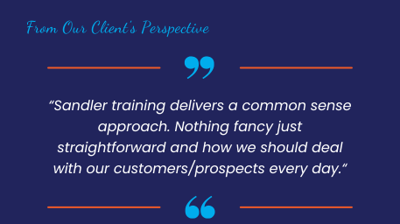Should you sell on the ROI that your product or service delivers?
The logical and rational answer to this question is of course you should!
But people and organizations are not always logical and rational when it comes to making purchases. Think about something you purchased recently. How much logic and reason went into the decision and when did those calculations happen in the process?
The hard truth is not that much. Typically, those calculations happen AFTER you have decided to purchase.
The buying process starts with interest. Interest is driven by the realization of a problem someone is experiencing, a risk they want to avoid, or an opportunity they want to obtain.
When we encounter one of these states, we rarely start thinking about rational outcomes of solving this problem. We tend to focus on the emotions it produces. In pure psychological terms that’s pain, fear, and the potential pleasure that a solution could provide.
People explore and purchase things based on emotions; the ones they are experiencing and emotions they are seeking. When they find it, they use logic and reason to justify the purchase.
So, what does that mean to your sales efforts? Save the ROI discussion for the end.
At the beginning of the sales process, thoroughly understand the problem from the buyer’s perspective. Help the buyer recognize their emotional connection to the problem. When you talk about ROI early, people get skeptical, dismissive, and don’t feel like you are listening to their needs.
In the middle of the process, focus on how your solution will produce a different buyer experience producing a different emotional experience. What pain relief will they see? What emotion will that experience produce?
At the end of the process, focus on helping the buyer justify the value of obtaining the new emotional state. People buy based on emotion and justify their actions based on ROI or the logical elements that your offering produces.
It’s important that your offerings have elements of ROI to justify the value they produce. But that doesn’t produce the motivation for your potential client to act on fixing it.
Help them fully understand their pains, fears, and opportunities and how they will feel when they have found a new state. Show them why that’s the right logical choice. Help them realize why they want it then show them how to justify it.

![]()
Eric Warner, the founder and president of Praxis Growth Advisors, is an award-winning sales trainer, leadership development specialist and accomplished sales process strategist. He has more than 25 years of experience leading teams, building businesses and driving complex sales processes.






